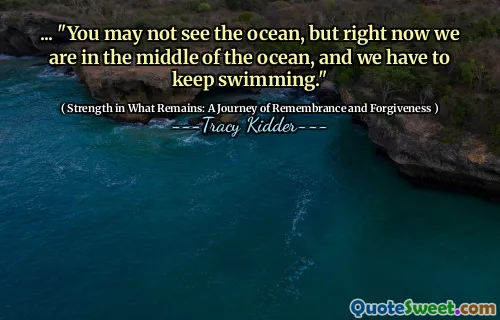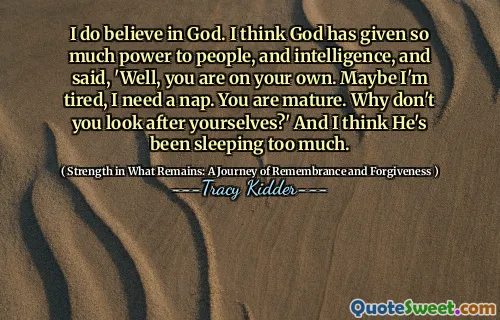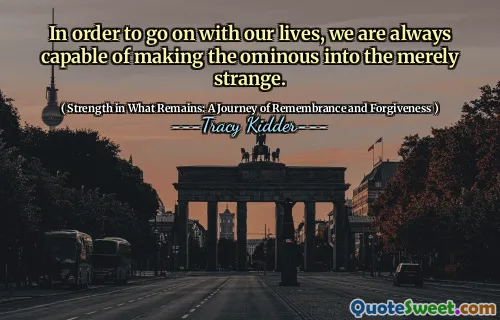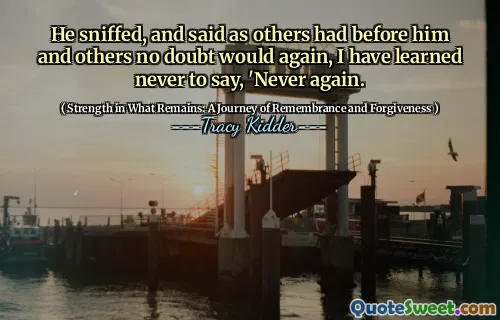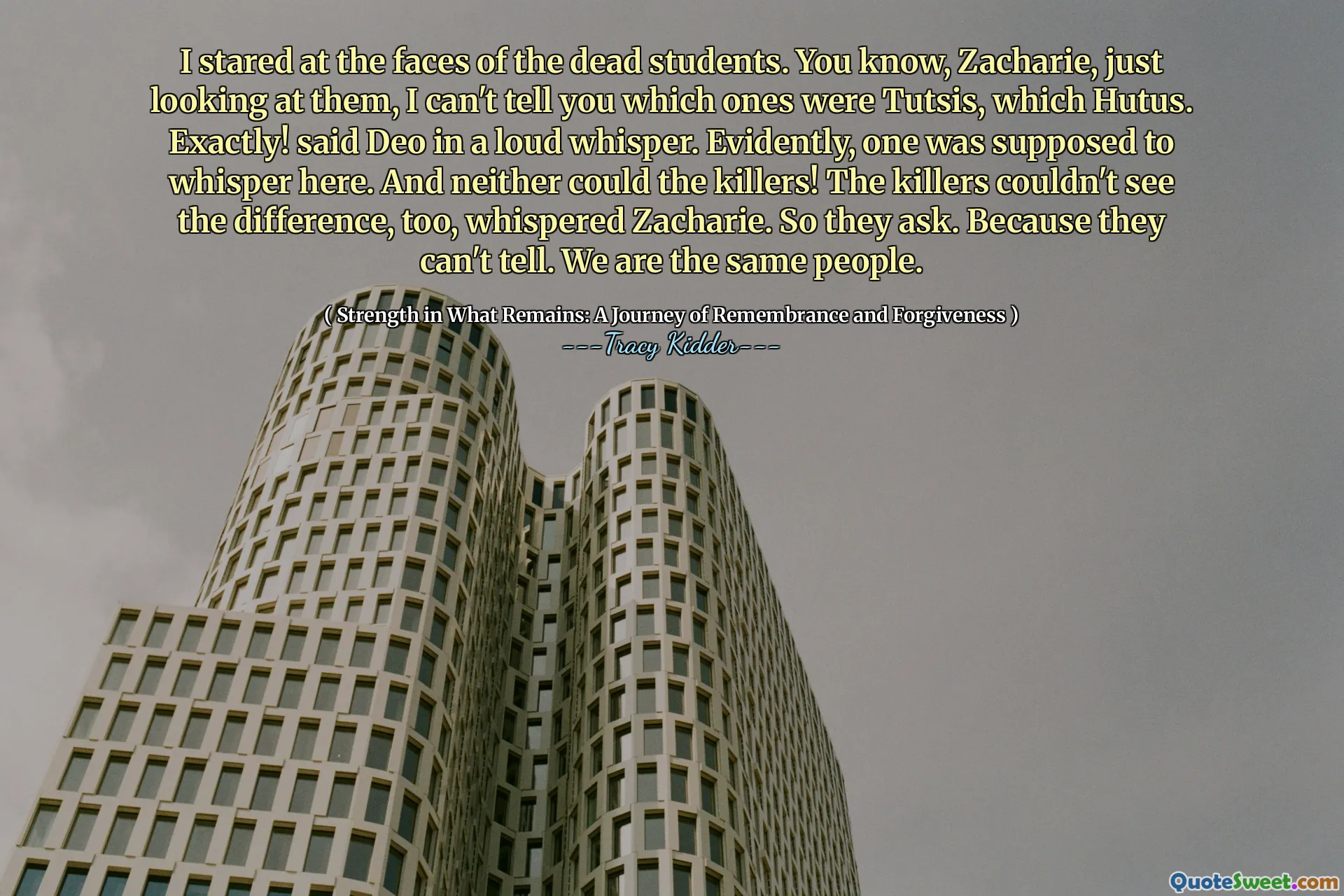
I stared at the faces of the dead students. You know, Zacharie, just looking at them, I can't tell you which ones were Tutsis, which Hutus. Exactly! said Deo in a loud whisper. Evidently, one was supposed to whisper here. And neither could the killers! The killers couldn't see the difference, too, whispered Zacharie. So they ask. Because they can't tell. We are the same people.
The quote reflects a poignant moment of realization amidst tragedy, emphasizing the superficiality of ethnic distinctions. Zacharie and Deo highlight how, in death, the identities of the victims blur, symbolizing the shared humanity that transcends their ethnic backgrounds, Tutsi or Hutu. This idea suggests that the violence inflicted by the killers stems from ignorance rather than any intrinsic differences among the people they murdered.
This conversation underscores the profound impact of civil conflict, illustrating how deep-seated divisions can lead to destruction, yet also revealing a truth about the fundamental unity of human beings. The notion that the killers themselves required clarification on identities indicates a tragic irony in the violence, illustrating how these divisions are ultimately artificial. Such reflections invite readers to consider the importance of empathy and recognition of shared experiences in promoting healing and reconciliation.
